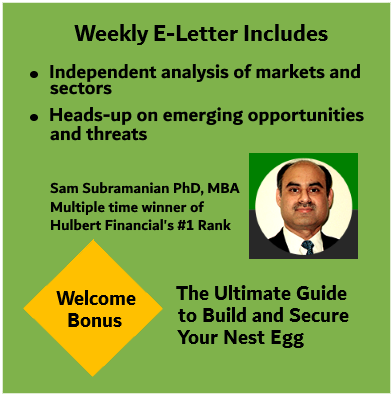In their quest for the best no load mutual fund, some mutual fund investors tend to select mutual funds based solely on fees and expense ratios. Is this always a good way to select mutual funds?
Metrics such as price/earnings ratio and dividend yield on the S&P 500 index, a commonly used proxy for the U.S. stock market, are hardly at bargain levels. Several market experts prognosticate single digit annual returns for domestic mutual funds over the next decade.
In pursuing the selection for the best mutual fund, some mutual fund investors tend to focus exclusively on fees and expense ratios. The rationale is that by choosing mutual funds with low fees, investors can have more of their capital invested. Also, no load mutual funds with low expense ratios will pass on more of the returns they earn to their shareholders.
Is shopping for the lowest fees and expense ratios the right way to select mutual funds? Not always. The answer depends on the type of mutual fund you are evaluating, the time you can devote to evaluating and managing your mutual funds investments, and the type of cost incurred.
Investing in the Best No Load Index Mutual Funds.
If you believe markets are generally efficient and prefer to invest in an index mutual fund to achieve an index-like return, shopping for the best index mutual fund based on low fees and a low expense ratio makes perfect sense. An index mutual fund’s portfolio manager seeks to invest the fund’s assets to track an index as closely and as cost-effectively as possible. Larger index funds have an advantage since they can spread their operating costs over a larger asset base.
Some of the interesting index mutual fund options currently available include no load index mutual funds like E*Trade S&P 500 Index Fund (Nasdaq: ETSPX), Fidelity Spartan 500 Index Fund (Nasdaq: FSMKX), and Vanguard 500 Index Fund (Nasdaq: VFINX) with expense ratios of 0.09%, 0.10%, and 0.18%, respectively.
Investing in Actively Managed Mutual Funds and Strategies.
If you believe portfolio managers can add value and out-perform the index through active management, fees and expenses are just one of several important factors to consider. The portfolio manager’s ability and investing style are just as important. Therefore, seeking out the best mutual fund based on just low fees and a low expense ratio may not always be the right approach. It may just be the case of being ‘penny-wise and pound-foolish’.
Legendary investor Peter Lynch, who managed the Fidelity Magellan Fund (Nasdaq: FMAGX) from 1977 to 1990, achieved returns well in excess of the market averages even after accounting for the fund’s fees and expenses.
So too has Bill Miller who currently manages the Legg Mason Value Trust (Nasdaq: LMVTX). Even after accounting for its relatively high 1.7% expense ratio, this no load mutual fund has achieved compound annual returns of 18.6% for the 10 year period ending in 2004, well in excess of 12.0% for the Vanguard 500 Index mutual fund.
AlphaProfit, an investment research firm that specializes in sector investing, uses the no load Fidelity Select Funds to implement its investing strategy through its Core™ and Focus™ model portfolios. Although not the lowest, the expense ratio of the no load Fidelity Select Funds compares favorably with that of other sector fund offerings. AlphaProfit prefers Fidelity Selects for their comprehensive coverage of sectors and industry groups. The AlphaProfit model portfolios have significantly outperformed the market averages over time.
Ensuring Your Mutual Fund Puts Your Interest First.
Whether you prefer to index or take an active approach to managing your investments, ensuring that your mutual fund is putting your interests first is good investing practice.
|
“If you believe portfolio managers can add value and out-perform the index through active management, fees and expenses are just one of several important factors to consider. The portfolio manager’s ability and investing style are just as important. Therefore, seeking out the best mutual fund based on just low fees and a low expense ratio may not always be the right approach.” |
Mutual funds charge different types of fees. By looking at some key factors pertaining to fees, you can get a sense of whether the mutual fund puts your interests first or merely seeks to line the mutual fund company’s pockets.
Serving the Interests of Long-Term Shareholders. Some mutual funds impose short-term trading fees to discourage frequent trading of mutual fund shares. Frequent trading disrupts efficient management of the mutual fund and increases operating expenses. A short-term trading fee can therefore actually be beneficial to long-term shareholders if the fee is rightly treated by the mutual fund company.
Fidelity Spartan Total Market Index Fund (Nasdaq: FSTMX), for example, follows the practice of returning short-term trading fees collected on shares held less than 90 days to the mutual fund itself rather than passing on the benefit to the mutual fund company. By having this short-term trading fee structure, this no load mutual fund seeks to contain its operating expenses. Such fees are therefore aligned with the interests of long-term shareholders of this mutual fund.
Passing on Savings from Scale Economies. The operating expenses incurred by a mutual fund are a combination of fixed and variable costs. As the assets of a mutual fund increase, the fixed cost gets spread over a larger asset base. Therefore, the expenses incurred to operate the mutual fund as a percentage of the fund’s assets should trend lower.
A mutual fund that places the interest of shareholders first must pass on the savings from scale economies to shareholders. The trend in a mutual fund’s expense ratio therefore serves as a metric of how seriously a fund takes its fiduciary responsibility.
Key Points.
- If you are searching for the best no load index mutual fund, shopping for one with low fees and expenses makes perfect sense.
- If active management of investments appeals to you, fees and expenses are just one of several important factors to consider. The ability and investing style of the portfolio manager are at least just as important as fees.
- The types of fees a mutual fund charges and how the fund uses the fees provides clues as to how seriously a mutual fund takes its fiduciary responsibility. Mutual funds that impose fees to contain operating expenses and return fees to the mutual fund help protect the interests of long-term shareholders.
- Mutual funds that put the shareholders’ interests first typically pass on savings from scale economies to the shareholders.

 Sick buying high & selling low? Fed up of the fees you pay? Tired researching investments? End your financial pain now. You have the opportunity to
Sick buying high & selling low? Fed up of the fees you pay? Tired researching investments? End your financial pain now. You have the opportunity to 

 DEC. 1993 to DEC. 2023
DEC. 1993 to DEC. 2023





